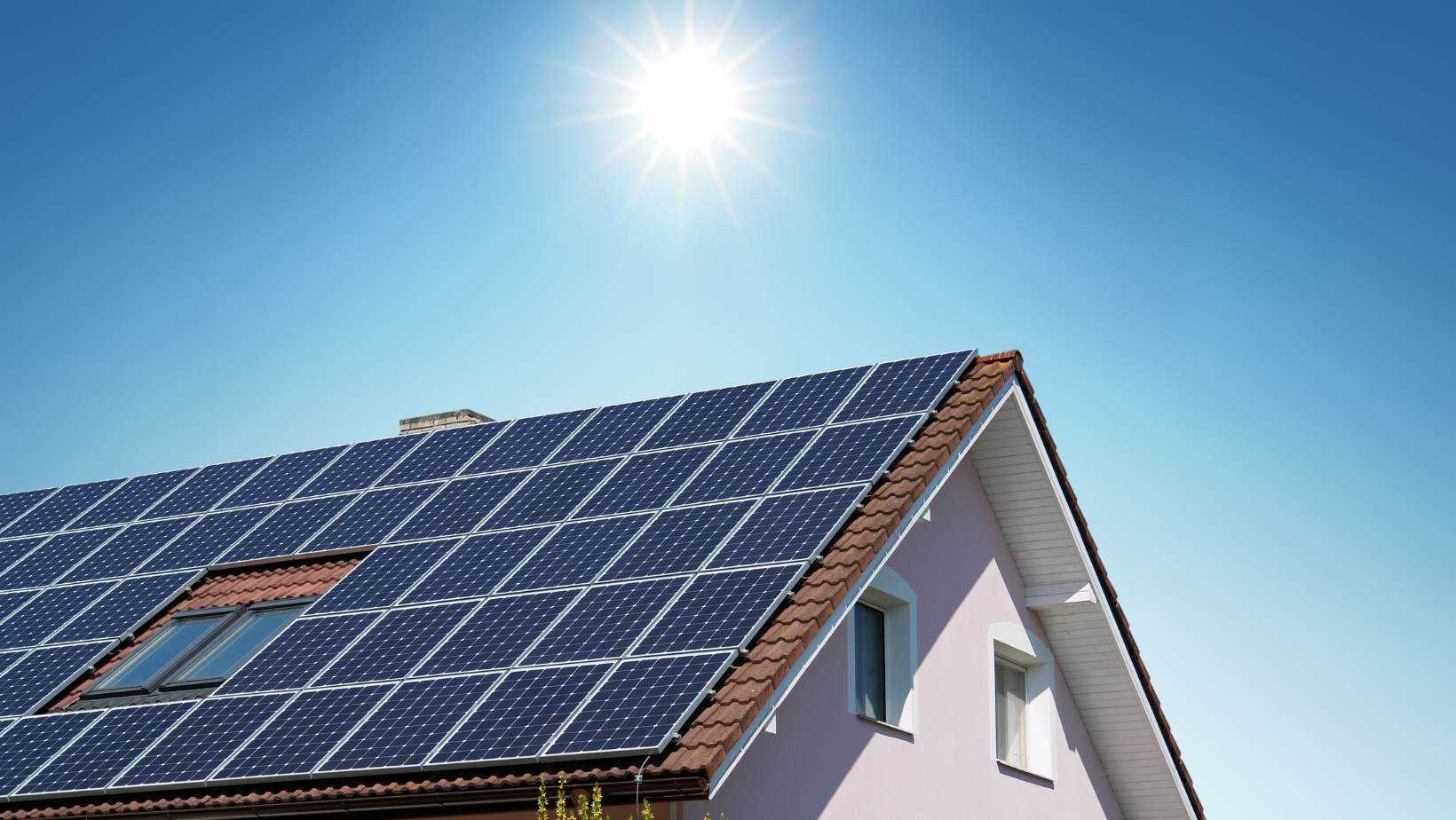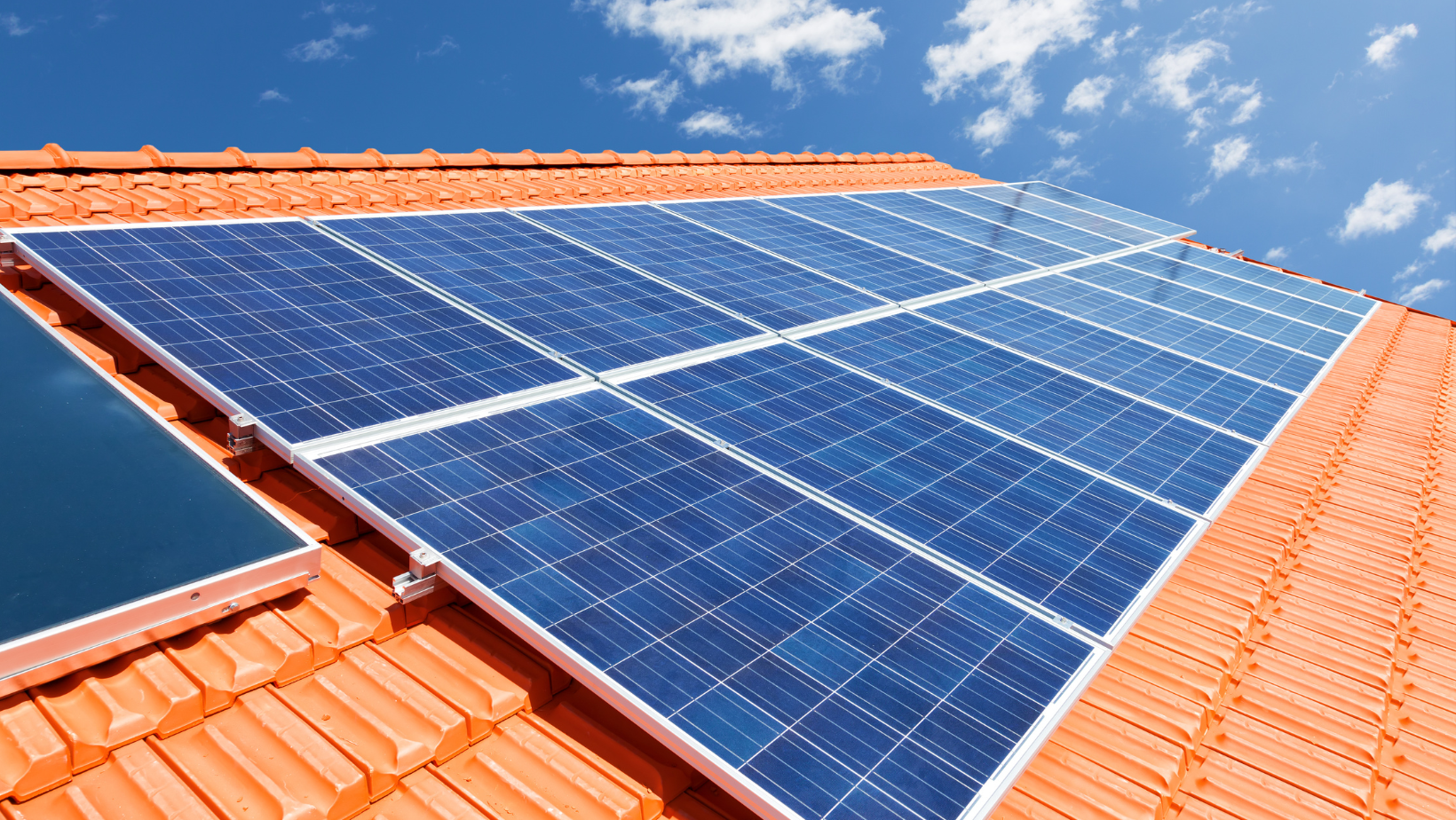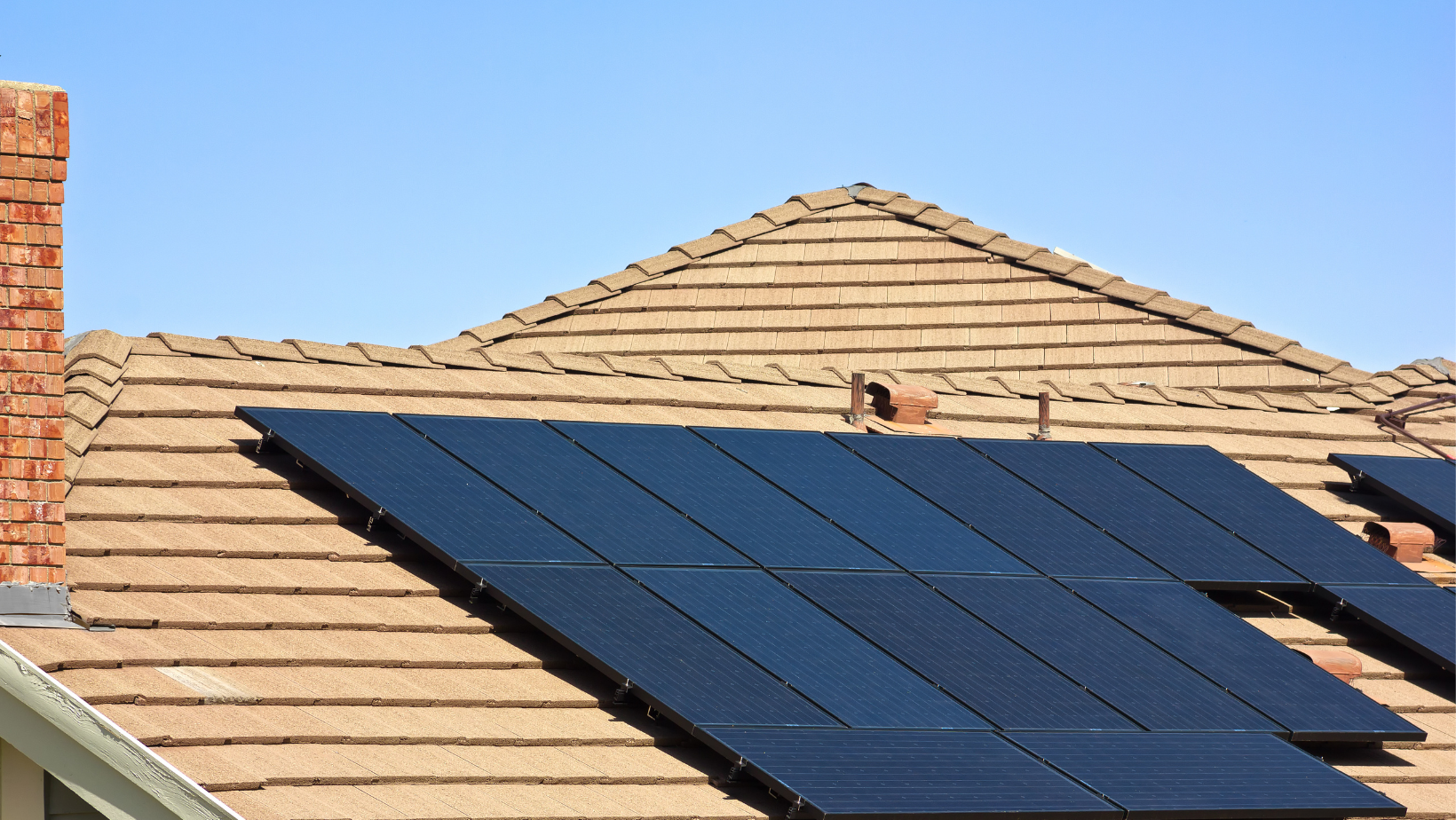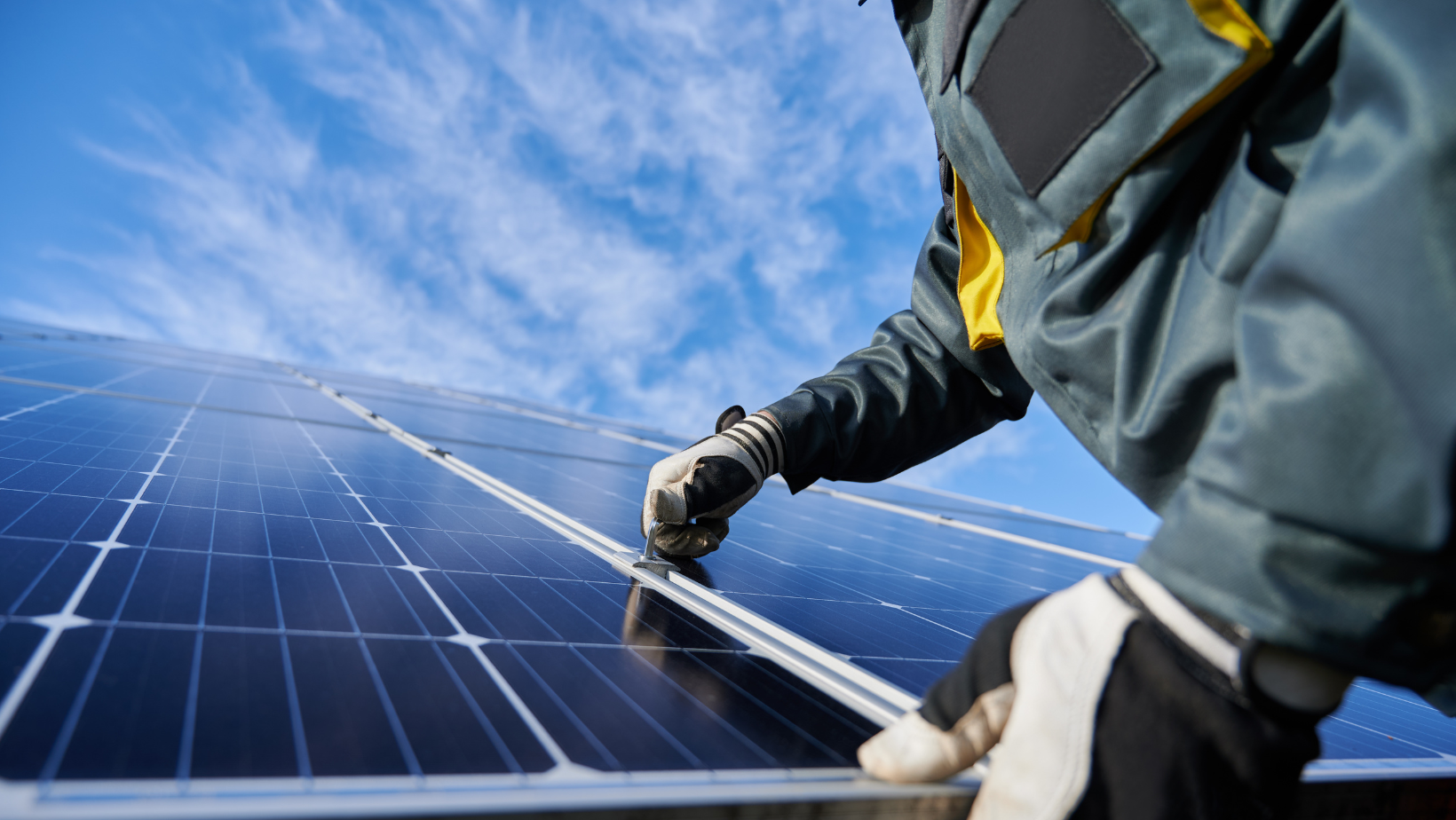Do Solar Panels Increase Home Value?
In today’s eco-conscious market, homeowners increasingly focus on sustainable living practices, with solar panels at the forefront of this green revolution. Integrating solar technology into residential properties isn’t just a nod to environmental stewardship; it’s a strategic move that can significantly enhance a home’s market value. By harnessing the sun’s energy, homeowners cut down on their utility bills and contribute to a reduced carbon footprint, making solar panels attractive for buyers who care about the environment.
As energy costs continue to rise, the economic benefits of solar power become even more pronounced, making homes equipped with solar technology highly sought after in the competitive real estate market. In this article, we will explore the tangible benefits of solar installations and why upgrading to solar energy might be the wisest decision for your home. Continue reading to learn more about the financial and environmental advantages of going solar.
How Solar Panels Contribute to Home Value

Understanding how solar systems boost property value is essential. Below are the various ways solar panels enhance the value of your home:
Reduced Energy Costs
One of the most tangible benefits that solar panels bring to a homeowner is substantially reduced energy costs. Solar energy systems can significantly lower monthly utility bills by generating electricity that offsets the need to draw power from the grid, providing financial relief that accumulates over time. Additionally, solar panels convert sunlight into direct savings, allowing homeowners to reallocate funds that would have been spent on electrical expenses into other investments or expenditures.
This financial efficiency is preserved by potential buyers, who recognize the value of a lowered cost of living when assessing a home’s worth. For example, if you recently installed solar panels and want to sell your home. In that case, you can market it as an “energy-efficient” property, which can attract environmentally conscious buyers who will be willing to pay a premium for the added benefit of reduced energy costs.
Long-term Savings
The longevity of solar panels translates into long-term savings that can be particularly attractive to prospective homebuyers. Homeowners can enjoy the benefits of minimal electricity bills over a typical solar panel lifespan of 25 to 30 years. For example, if you install solar batteries with a capacity of 5 kilowatts, roughly saving $1,500 annually on electric bills could mean total savings of $37,500 to $45,000 over 25 to 30 years.
These substantial savings are not merely hypothetical but are concrete figures that capture the attention of buyers interested in long-term cost efficiency. When such buyers evaluate a home with solar panels, they appraise a property for its immediate amenities and future financial benefits. Homes with solar energy systems often command higher resale prices than non-solar homes.
Tax Credits and Incentives
The financial attractiveness of solar panels is further increased by incontrolable tax credits and solar incentives designed to encourage renewable energy adoption. In the United States, homeowners who install solar energy systems are eligible for the Federal Solar Investment Tax Credit (ITC), which allows them to deduct a significant percentage of the installation costs from their federal taxes. This substantial incentive can lead to thousands of dollars in savings, making the upfront cost of solar installations more manageable.
Additionally, many states and municipalities offer incentives, such as rebates, property tax exemptions, and net metering policies, which allow homeowners to sell excess power back to the grid. For example, suppose you are a homeowner in New Jersey. In that case, you can benefit from the Federal ITC and capitalize on the state’s Solar Renewable Energy Certificate (SREC) program, which lets you earn extra income by generating clean energy. This detailed weaving of financial benefits raises the value proposition of a property equipped with solar panels and can tip the scales for buyers deliberating over a purchase.
Durability and Longevity
When considering the long-term benefits of solar panel installations, durability and longevity stand at the forefront. This ensures that the investment continues to pay dividends for decades, offering a sustainable energy solution that contributes to environmental and financial well-being. Solar panels typically come with a warranty of 20-25 years, providing peace of mind and a guarantee of performance.
Their life expectancy can extend well beyond that timeframe, showcasing their reliability and cost-effectiveness. Manufactured with robust materials and technology, solar panels are built to withstand harsh weather conditions, ensuring consistent energy efficiency even in extreme climates. For example, suppose you sell your home after installing solar panels. In that case, the remaining years of the warranty can be highlighted as a selling point, emphasizing the long-term benefits and significant cost savings associated with solar energy.
Benefits That Enhance Home Value

Several benefits of solar panel ownership enhance the value of your property over time. These are:
Environmental Sustainability
One of the most profound implications of adopting solar panels is their contribution to environmental sustainability. By harnessing the sun’s power, a clean and inexhaustible energy source, solar panels substantially reduce the reliance on fossil fuels, gas emissions, and climate change. For every kilowatt-hour (kWh) of solar energy produced, considerably less carbon dioxide is released into the atmosphere than traditional energy sources, diminishing the household’s carbon footprint.
This shift toward a more sustainable energy source echoes a global trend of responsible consumption and an awareness of the environmental impact of our daily choices. For example, if you live in a state with high electricity rates or frequent power outages, installing solar panels can provide independence from the grid and contribute to reducing your carbon footprint. This added benefit appeals to environmentally conscious buyers, increasing the overall value proposition of your property.
Energy Independence
Embracing solar technology can boost a homeowner’s energy independence, reducing vulnerability to volatile energy markets and potential grid instability. This pursuit of independence is not merely an exercise in personal empowerment but a strategic enhancement in property value. With solar panels, homes become self-reliant power stations capable of producing electricity, which can be particularly advantageous in areas with high utility rates or a history of power outages.
For example, if you are a homeowner living in California, a state plagued by rolling blackouts and high electricity prices. By installing a solar panel system, you can avoid the unpredictable interruptions of the power supply and shield yourself from spiraling energy costs. Paired with battery storage solutions, solar panels can ensure round-the-clock power availability, even when the grid fails, solidifying a home’s appeal in the real estate market. This level of self-sufficiency signals to potential buyers, not just a practical asset but an investment in resilience and security.
Market Appeal
Solar panels significantly boost a property’s market appeal by aligning perfectly with the ever-growing consumer demand for energy-efficient and sustainable homes. Beyond just being a green energy source, solar panels represent a visible commitment to modernity and environmental responsibility, which are becoming increasingly vital in today’s real estate market. A well-planned solar installation not only adds to the aesthetic charm of a property but also sends a clear message to potential buyers that the home is at the forefront of renewable technology advancements.
This becomes even more crucial in markets where ‘green’ homes command a premium. For example, Portland is a forward-thinking market where properties equipped with solar panels can shine brightly among many listings, catching the eye of environmentally-conscious buyers. These eco-friendly homes often experience quicker sales due to their perceived sophistication and preparedness for sustainable living, offering sellers a competitive edge in the market.
Potential for Solar Investment to Pay for Itself Over Time
One of the most compelling aspects of solar energy investment is its potential to offset its cost over time. Homeowners reinvest savings into their pockets by substantially reducing or eliminating monthly electricity bills. This cumulative financial benefit can cover the initial cost of solar panel installation within a period, often as short as 5 to 10 years, depending on the energy output and local energy prices.
After reaching what’s known as the ‘solar payback period,’ every kilowatt-hour of electricity generated represents pure savings. For example, if you are a homeowner in Arizona, where abundant sunshine and higher-than-average electricity rates make solar particularly beneficial. Installing a solar panel system that costs $15,000 after incentives. With an average energy bill of $200 per month before solar, the system would pay for itself in about 6 to 7 years. Post-break-even, it’s as if the utility company is paying the homeowner, not vice versa.
Challenges and Considerations

Apart from solar panels’ benefits on home value, certain challenges must be considered. Below are some key factors you should consider:
Upfront Solar Panels Cost
Despite the significant long-term benefits of solar panel installation, the initial costs can be daunting for many homeowners. The expenditure for purchasing and installing solar panels includes the price of the panels themselves, inverter, mounts, wiring, and labor, a sum that can rise to several thousands of dollars. This initial investment needs to be evaluated in the context of future savings on utility bills, increased home value, and available financing and incentive options that can offset the upfront expense.
Additionally, innovations in solar technology and growing competition in the industry are driving down costs, making solar more accessible to a broader range of homeowners. For example, if you are a homeowner in Florida, you can explore financing options such as Property Assessed Clean Energy (PACE) loans or leasing programs that require little to no upfront cost. The advancements in solar panel efficiency and durability contribute to a longer lifespan of solar panels, increasing the overall value proposition for homeowners.
Maintenance and Repairs
The practicality of solar panels as a home value enhancer also relies on their low-maintenance nature and an occasional need for repairs. Unlike several other home improvements, solar panels do not demand frequent or intensive upkeep, typically necessitating an annual checkup and routine cleaning to maintain optimal performance. Homeowners must be aware that potential repairs might be required over the lifespan of their solar system, such as inverter replacement or dealing with storm damage.
For example, suppose you live in a region that experiences severe weather, such as hurricanes or tornadoes. In that case, ensuring that your solar panel installation is durable enough to withstand these conditions and have the appropriate insurance coverage is essential. Additionally, staying informed about technological advancements in solar energy and considering possible upgrades can further enhance the long-term benefits of your solar panel system. Regular monitoring of energy production and system efficiency can help identify any issues early on, ensuring your solar investment continues to provide sustainable and cost-effective energy for your home.
Property Appraisal Considerations
A comprehensive appraisal process is pivotal when determining the enhanced value solar panels bring a property. Appraisers with expertise in green technologies are instrumental in this endeavor, as they can accurately quantify the added value of solar investments. Factors such as local utility rates, the size and quality of the solar installation, and the prevailing market trends all feed into the evaluation.
For example, homes in sun-rich states like Arizona can see a significant bump in appraisal value due to the high potential for energy production. Professional appraisers will compare similar properties with and without solar installations, considering the tangible savings in energy costs and the intangible appeal of a sustainable and environmentally friendly home. In a market where green energy is increasingly important to consumers, the economic advantages can be the deciding factor for potential property buyers. Staying aware of your solar panel investment’s appraisal value and consistently updating it can maximize its potential for enhancing property value.
Future Trends in Solar Energy and Home Value

As the demand for sustainable and eco-friendly homes continues to rise, so does the potential for solar energy to increase property values. Here are some key trends that could impact home value in the future:
- Smart Home Integration: With technological advancements, solar energy systems can now be seamlessly integrated with smart home devices, making it easier for homeowners to monitor and manage their energy usage. This added convenience and control can enhance the appeal of a property to potential buyers.
- Energy Storage Solutions: As more homeowners look to become self-sufficient and reduce their reliance on traditional energy sources, integrating energy storage solutions like batteries into solar panel systems is becoming increasingly popular. This added feature can further improve the overall value proposition of a property.
- Government Incentives: With growing awareness about the benefits of solar energy, governments are implementing various incentive programs to encourage homeowners to invest in solar panel installations. These incentives, such as tax credits and rebates, can significantly reduce the upfront costs for homeowners and make solar energy even more attractive.
- Community Solar Programs: Community solar programs allow multiple households to share the benefits of a single solar installation, making it financially feasible for those who may not have the means to install their system. This solar energy industries association could increase property values in areas with community solar programs, as the energy savings and environmental benefits are shared among community members.
Conclusion
The relationship between solar energy and home value is multifaceted and promising. Long-term savings on utility bills, government incentives, and the increased marketability of a property with a clean, renewable energy source may offset the initial costs of installation. Maintenance and repair considerations are minimal but essential for ensuring the system’s longevity. With an eye to the future, trends such as smart home integration, energy storage solutions, and shared community solar initiatives indicate a bright trajectory for solar investments in real estate.
Homeowners who embrace these advancements will not only contribute to a more sustainable environment but may also see a corresponding enhancement in their property’s value. As the world increasingly values green technology, solar panels are a prudent and forward-thinking choice for those looking to increase their homes’ ecological and economic worth. So, it is evident that solar panels are not just a wise investment for homeowners but also have the potential to contribute towards a more sustainable future.
